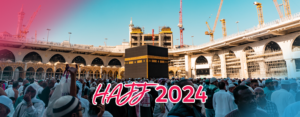
Ramadan is almost here again. It’s the ninth month of Islamic calendar and and the best time of the years for Muslims to seek spiritual renewal. Ramadan is not just about refraining from eating and drinking the whole day it’s the time for Muslims to reflect, repent and seek Allah’s forgiveness. Seeking Allah’s Forgiveness (ISTAGHFAR) is the act of acknowledging one’s mistakes, repenting on them and seeking forgiveness. In this article we will delve into the essence of Ramadan as a time of repentance on the sins and embracing spiritual growth getting closer to Allah Almighty.
Understanding The True Essence Of Ramadan
The true essence of Ramadan goes beyond the physical act of fasting and starving your stomachs from dawn to dusk. To seek spiritual renewal, we need to understand the true meaning of fasting. It’s time to purify our hearts and souls and get closer to Allah, leaving behind all our worldly desires. It’s time for Muslims to evaluate their actions, acknowledge their wrongdoings, and abstain from all their worldly desires. It’s time to practice patience, self-control, and empathy towards others.

Ramadan and Forgiveness
Ramadan is the time of forgiveness. Forgiveness not only means seeking forgiveness of your sins from Allah but also forgiving others. When we ask Allah for forgiveness on the mistakes and sins we have done throughout the year, it’s also necessary to let go of the grudges you hold against people and forgiving them. Allah is a forgiver and the moment you truly repent on your sins and decide to quit it for Allah’s sake, He forgives you. Similarly Allah expects us to be forgivers. When you forgive someone it not only brings you peace but also brings you closer to Allah seeking his blessings and forgiveness.
The practice of Istaghfar
Istaghfar is not merely seeking of the forgiveness verbally, it’s a sincere repentance on your wrongdoings and a desire to leave every sin for Allah’s sake. It’s the promise you make to Allah deciding to leave anything that can lead to Allah’s wrath. Repentance on your sins and the practice of Istaghfar is the true essence of Ramadan and fasting. Allah waits for his servants to turn to him and seek forgiveness and its something that makes Him happier than his servant’s true repentance. Ramadan brings the perfect opportunity to reflect on your life and fix your ways to please Allah.
The power of forgiveness
Ramadan emphasizes the spirit of forgiveness, and it’s not just seeking forgiveness from Allah but also forgiving the people who have wronged you.
Narrated by Abu Huraira, the Prophet Muhammad (peace be upon him) said:
“Whoever does not show mercy to the people, Allah will not show mercy to him.” (Sahih Bukhari)
It clearly states that if we expect Allah to forgive every wrongdoing of ours, we should be forgiving enough to let go of the grudges we hold against people. Forgiving others will seek you Allah’s blessings and forgiveness and will give you a liberating feeling as you will let go of the resentments and grudges you were holding against people. Additionally, practicing forgiveness during Ramadan leads to self-improvement and personal growth. Forgiveness makes you humble, as most of the time it requires you to put your ego aside just for Allah’s sake.
Ramadan and Spiritual Renewal
Ramadan is all about cleansing your soul and heart. When a person starts refraining from worldly attractions just to please Allah, they purify their soul and heart. This helps in spiritual renewal as by doing this, Muslims rebuild and strengthen their connection with Allah. The act of seeking forgiveness and forgiving others is also seen as a way to purify your heart as you free it from all the grudges and negative feelings you were holding for others. Forgiveness brings a sense of peace and harmony and gives you the perfect opportunity to start over. In short, the acts of Istaghfar—praying more than usual, seeking forgiveness from Allah, and forgiving others will help you in your spiritual renewal, giving you a fresh start.

Carrying Forward the Spirit of Ramadan
As Ramadan approaches its end, it brings a ray of sadness and gratitude. As we bid farewell to this month, we need to realize that the change Ramadan brought us is something we should keep doing for the whole year. The lessons Ramadan teaches us are not meant to be followed in these 30 days only. Ramadan comes to make us reflect and repent of our wrongdoings, with the lesson that if you can leave sins and wrongdoings for Ramadan, you can leave them for good. The practices of forgiveness and ibaadat bring you closer to Allah. So, aim to keep following the teachings for the whole year and be a better Muslim.
In conclusion, Ramadan is a transformative journey seeking forgiveness and spiritual renewal. Ramadan is a complete retreat for Muslims, giving them the opportunity to seek Allah’s blessings more than any other month of the year, when the gates of heaven are open and the gates of hell are closed. As you emerge from Ramadan with spiritual renewal and seek forgiveness, carry forward its lesson and don’t lose what you have gained in this month because we don’t know if we will get to see the next Ramadan or not.







No comment yet, add your voice below!